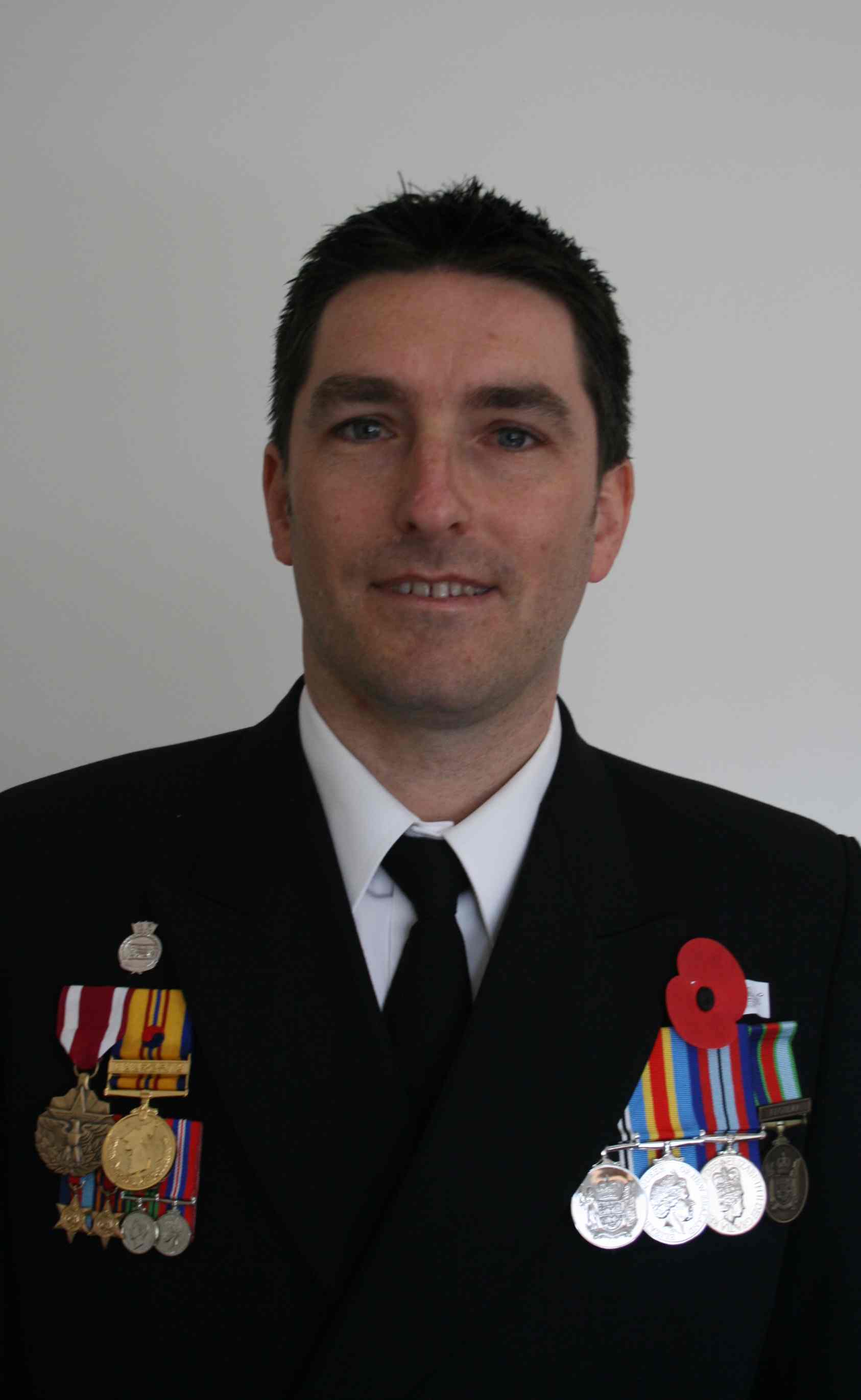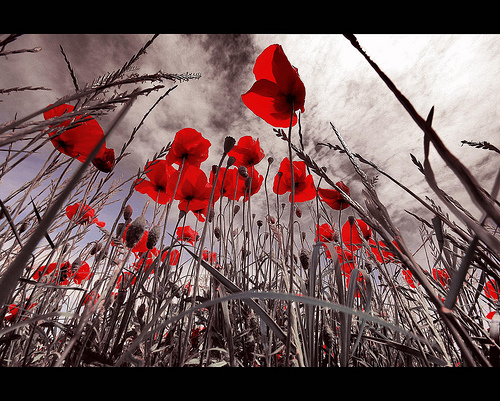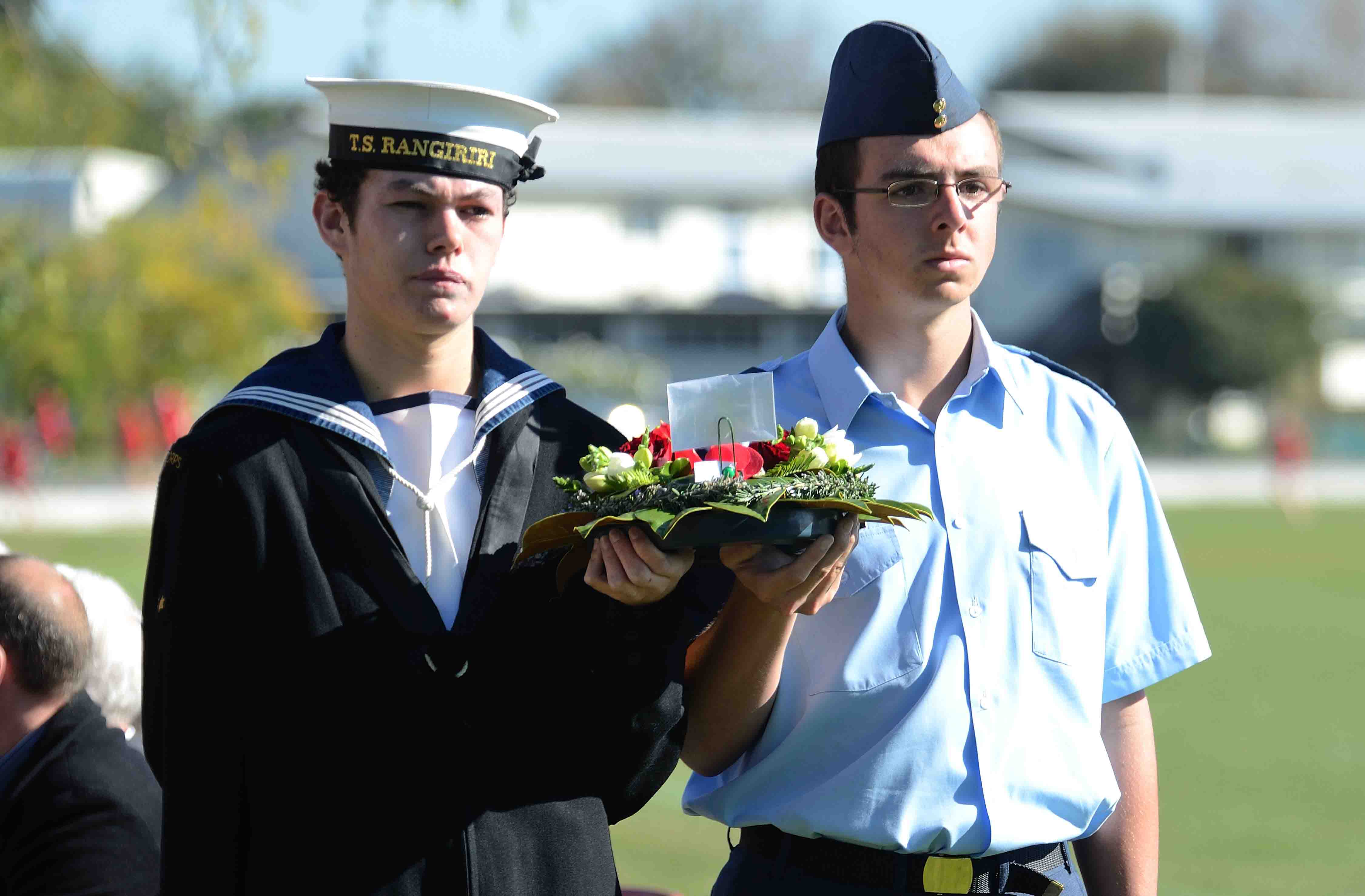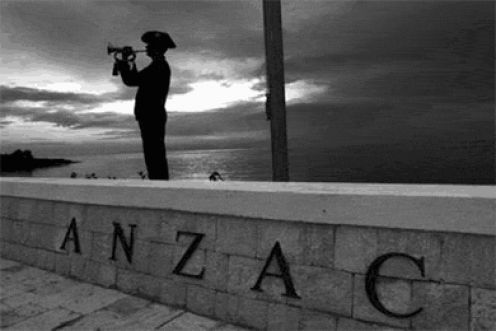HBHS Anzac Day Commemorations
 Hamilton Boys’ High School observed Anzac Day today with an outdoor assembly and formal service. The assembly was attended by staff, the senior school, cadets, Old Boys who have served or who are serving in the armed forces, and friends of the school. Lieutenant Commander Karl Gill, an HBHS Old Boy, spoke of the significance of Anzac Day to him.
Hamilton Boys’ High School observed Anzac Day today with an outdoor assembly and formal service. The assembly was attended by staff, the senior school, cadets, Old Boys who have served or who are serving in the armed forces, and friends of the school. Lieutenant Commander Karl Gill, an HBHS Old Boy, spoke of the significance of Anzac Day to him.
As an Old Boy of this school, I remember sitting where you now sit, looking upon our teachers and the Headmaster at assembly and wondering what I would do in years to come. I had good friends, had an idea of my interests and hobbies, and was yet to really establish a plan for my future. I then joined the Royal New Zealand Navy, and 18 years later, I still have those good friends I met at this school, and many more, and the plan for my future continues to unfold.
Only this time last year, I was asked to lead a small New Zealand Defence Force team of 16 soldiers, sailors and airmen to Turkey to attend the Gallipoli commemorations for the 94th anniversary. I never thought I would have the opportunity, as I was not aware of any direct family link to the Gallipoli campaign. Regardless, I went home and told my wife, and she asked ‘can I come?’ While I went through the planning and co-ordination for the event, I was made aware through NZ Veteran’s Affairs that they had dug up records that clearly showed my great grandfather had served in the Dardanelles and the Gallipoli Campaign. He did not have a great promotion track record as only three days after being promoted to Lance Corporal in 1915, he was reduced in rank back to Private – reasons unknown. He received an injury to his head from shrapnel during the campaign however, and returned back to fight next to his fellow soldiers only eight days later. He survived the war and died of natural causes, but never told his story to any family member. His medals were lost in his memory. This is a situation that I have found is not uncommon in veterans from the Great Wars. I passed my great grandfather’s military records to my grandmother and she was extremely appreciative to receive information that she had never known about her father and his involvement in the war.
We join together today to remember and honour the men and women who have served our country in past conflicts and those who continue to serve our country, in New Zealand’s Navy, Army and Air Force.
Some of 8,400-odd men who went to fight at Gallipoli, part of the 100,000 New Zealanders to fight in WWI – were drawn from communities the length and breadth of our country. These were men willing to serve their King and country, not knowing what to expect, eager for adventure and a chance to see the world. Amongst them was my great grandfather, Private David William John Brocklehurst, Regimental number 61592, aged just 22 years old, from Hokitika.
Large numbers of New Zealanders will attend dawn services tomorrow morning, and will join together to remember and honour those who have served and continue to serve our country. Nearly 100 years ago, young men from every New Zealand town joined together to answer the call to serve this country. Their courage and commitment is what we honour tomorrow, 97 years on from that fateful day in Gallipoli.
 We can by try and imagine the scene at Gallipoli on 25 April 1915. The New Zealand soldiers came off the boats and quickly joined the desperate battle to capture and defend the heights around Anzac Cove. Chaos was every where, soldiers separated from their units, units separated from their commanders.
We can by try and imagine the scene at Gallipoli on 25 April 1915. The New Zealand soldiers came off the boats and quickly joined the desperate battle to capture and defend the heights around Anzac Cove. Chaos was every where, soldiers separated from their units, units separated from their commanders.
As one young New Zealand soldier described the scene:
“Upturned boats, gear of all description, and dead men littering the beach – the noise – one continuous roar of rifle and shellfire mingled with the cries of the wounded and dying.”
What we commemorate on Anzac Day is no military triumph – but a more humbling triumph of human valour. The courage and endurance of those who did their duty at Gallipoli remains a vivid memory and source of identity, belonging and pride for every New Zealander and Australian.
We also remember the sacrifices made at Gallipoli by the British, French and Indian troops. We pay tribute as well to the young Turkish soldiers who suffered appalling losses so bravely for their homeland.
My own experience on the Gallipoli peninsula was that of a cold and sombre environment. The conditions I experienced in only one night, camped among thousands of visitors huddled under a sea of blankets and sleeping bags, on the embankment overlooking the Dardanelles were extreme and I have never felt so cold in all of my life. I conducted a television interview as part of the Reflective programme before the Dawn Service, and both I and the interviewer were shivering uncontrollably throughout. Up at Chunuk Bair later that morning, with a wind chill factor dropping by the minute, conditions were even harsher. I can only imagine how severe the conditions were over the period of the campaign in 1915. Unlike my visit to Gallipoli in 2011, thermal clothing, sleeping bags and hot drinks did not exist or were in limited supply during the campaign.
It is said that at Gallipoli, three nations emerged: Australia and New Zealand became nations and the first seeds of modern Turkey were sewn, in the form of the rise of Kemal Ataturk. For each of us, the 25th of April will forever be a part of what it means to be a New Zealander, an Australian or a Turk. For each of us, Anzac is part of our national identity. My personal experience confirmed that the Turkish people have a lot of respect for New Zealanders and Australians and have taken our fallen soldiers into their hearts alongside their own sons.
 Anzac Day is truly a national day for New Zealand – a day which many families actively observe by coming to their local service to commemorate and remember those who served and those who continue to serve our country.
Anzac Day is truly a national day for New Zealand – a day which many families actively observe by coming to their local service to commemorate and remember those who served and those who continue to serve our country.
It is heartening each year to continue to see the increasing number of people, especially young people, attending the dawn service and other Anzac Day services. This is a positive sign that the memory of service and commitment to our nation by our veterans is being passed from one generation to another – and it is a memory that continues to be valued and cherished.
That Anzac Day continues to draw record crowds is no surprise. If you look at the society we now live in, you will notice that we are a diverse group of people. We’re tall and short, male and female, young and old, some born here, some originally from other countires. Some of us are religious, some are not – yet we can all stand together on Anzac Day. There is something special in this bond, something precious, solemn and unifying.
The Anzac story touches a deep part in all of us. It is a story of sacrifice and courage, of commitment and giving, which resonate deep within us all. The life we enjoy today was purchased at the cost of many lives of our countrymen – such is the brutal arithmetic of war.
Few of us have ever had to risk everything ourselves, or chance our loved ones to the dangers of war. But for older generations of New Zealanders, the memories are very real. There are no veterans of the First World War surviving today and a dwindling number of those who fought in the Second World War. We pay tribute to them today and tomorrow on Anzac Day.
We also pay tribute to the other veterans who served in wars and other operations since the Second World War in Korea, Malaya, Vietnam and a diverse group of locations from Bosnia to Sinai to Sierra Leone. Men and women who have served in these conflicts have continued to demonstrate the same commitment of service to our nation and their fellow New Zealanders that marked the service of those who went before.
Over 300 NZ Defence Force personnel are deployed around the world today in countries such as Timore L’este. The Sinai, Afghanistan and the Pacific; in many cases working along side other Defence Forces. The work of this new generation of sailors, soldiers and airmen helps to maintain stability and peace around the world.
 In the past 18 months we have also shared the pain of those enduring the continuing earthquakes in Christchurch, the Rena grounding near Tauranga and floods in Nelson. Australia has also faced its own challenges such as the Queensland floods. And it is at times of crisis that we find that our trans-Tasman neighbour is a great friend. The determination face by those in challenging conditions is what marked Kiwis out at Gallipoli and it is this gutsy ‘can-do’ attitude that continues today.
In the past 18 months we have also shared the pain of those enduring the continuing earthquakes in Christchurch, the Rena grounding near Tauranga and floods in Nelson. Australia has also faced its own challenges such as the Queensland floods. And it is at times of crisis that we find that our trans-Tasman neighbour is a great friend. The determination face by those in challenging conditions is what marked Kiwis out at Gallipoli and it is this gutsy ‘can-do’ attitude that continues today.
It’s what being an Anzac means – having strength, courage and commitment to the task, the integrity to carry it through, and to always support your friend when in need.
Anzac Day does not commemorate a specific battle or glorify war. It serves as a commemoration of the effect of war on our country. This is a day when all generations gather at those places where the names of our ancestors are carved in stone memorials to the fallen. Their names are engraved on thousands of memorials, etched in stone forever. Real people; not just names. People with real lives and families – farmers and labourers, clerks, printers and nurses. Brave men and women who served New Zealand well, who fought for our country so that we can enjoy the freedom that we have today.
Anzac Day makes us remember that every town, every village, every city and almost every family in New Zealand had be affected by war. As a fledgling nation of locally born and immigrants, it gave us a unifying tragedy that made us one nation. Anzac Day commemorates not only the bravery of our people, but also what it costs to live by your principles: to be free.
Our Anzacs and all who have served our country will be held in our hearts and minds forever. The words of Kemal Ataturk in his capacity as the first President of Turkey, sent as a message to the first visitors to Anzac Cove from New Zealand, Australia and England in 1934 since the Ware are inscribed on the Turkish Memorial at the landing site and read;
‘Those heroes that shed their blood
And lost their lives…
You are now lying in the soil of a friendly country.
Therefore rest in peace.
There is no difference between the Johnnies
And the Mehmets to us where they lie side by side
Here in this country of ours…
You, the mothers,
Who sent their sons from far away countries,
Wipe away your tears;
Your sons are now lying in our bosom
and are in peace.
After having lost their lives on this land, they have
Become our sons as well.’
Like my great grandfather and those who fought beside him, we will remember them. We will remember them.
Back to News
